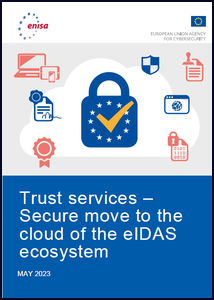EU Digital Wallet: Opportunities for Channel Partners
Analysis of the EU's ecosystem model for rolling out a Digital Wallet, and the commercial opportunities this presents for channel partners.
 In this previous blog we describe a detailed overview of the EU’s plans to launch a digital wallet.
In this previous blog we describe a detailed overview of the EU’s plans to launch a digital wallet.
As this explains a key dimension of the EU initiative is that it is not only about identity technology, but also defines a wholesale collaboration ecosystem.
This defines ecosystem roles such as ‘National Accreditation Bodies‘ and ‘Conformity Assessment Bodies‘, ie. government-type organizations who will certify other participants to provide assurance of the ecosystem, and then ‘EUDI Wallet Providers‘, ‘Person Identification Data Providers‘ and ‘Device Manufacturers‘, where commercial players can fulfil specific service functionalities.
 Trust Service Providers
Trust Service Providers
To zero in on the specific opportunity for channel partners the Digital Wallet program includes a crucial component known as the Trust Service Provider.
A Trust Service Provider (TSP) is a designated entity that offers electronic identification, authentication, electronic signatures, and other trust services to facilitate secure electronic transactions. TSPs play a key role in establishing trust in the digital environment and are essential for the functioning of digital wallets and other online services.
In this guide they provide a detailed analysis on the different technical requirements that must be addressed considering the relevant standards. It also gives an overview of practical experiences on the move of trust services to the cloud. Vendors like Ascertia are providing the technology to empower MSPs to act in this capacity.
Roles and Responsibilities of a Trust Service Provider
Trust Service Providers are integral to the success of the EU Digital Wallet program for several reasons:
- Digital Identity services: Providing electronic identification services to verify the identity of users, offering authentication services to ensure the security of digital transactions and issuing electronic signatures to authenticate and validate electronic documents.
- Ensuring compliance with regulatory requirements and standards related to digital trust services. TSPs ensure that digital transactions comply with relevant regulations and standards, promoting legal certainty and consumer protection.
- Protecting the confidentiality and integrity of user data and transactions. TSPs help in enhancing the security of digital transactions by providing secure authentication and electronic signatures.
- Facilitating interoperability: TSPs play a role in facilitating interoperability between different digital services and platforms, making it easier for users to access and use digital wallets across the EU.
Most importantly as the name defines – Building trust: By offering reliable trust services, TSPs help build trust among users and businesses engaging in digital transactions.
ZealiD
ZealiD is an example of a vendor implementing the EU Digital Wallet standards and thus forming a component of that digital ecosystem. They are complying with the standards to be recognized as an EU Qualified Trust Service Provider.
ZealiD abides to an information security policy based on eIDAS qualified trust services, eIDAS designated ETSI standards and state-of-the-art EU regulation on remote identification. Their compliant platform then makes possible a number of Identity-enabled digital services, including electronic signatures and identity verification.
With only Face or Touch ID, users can sign, register and authenticate anywhere with a qualified certificate and signature – the highest expression of regulated digital identity in the EU. Their digital onboarding takes less than 3 minutes, showing an 85% success rate among first-time users.



